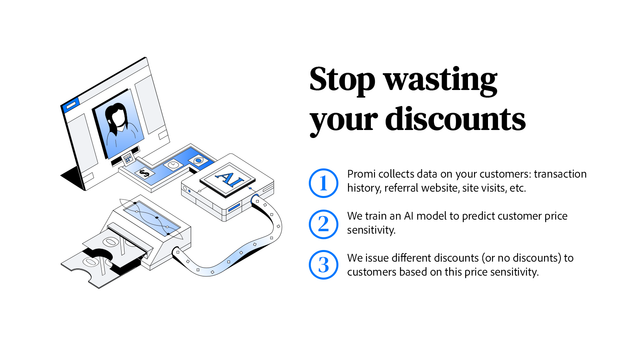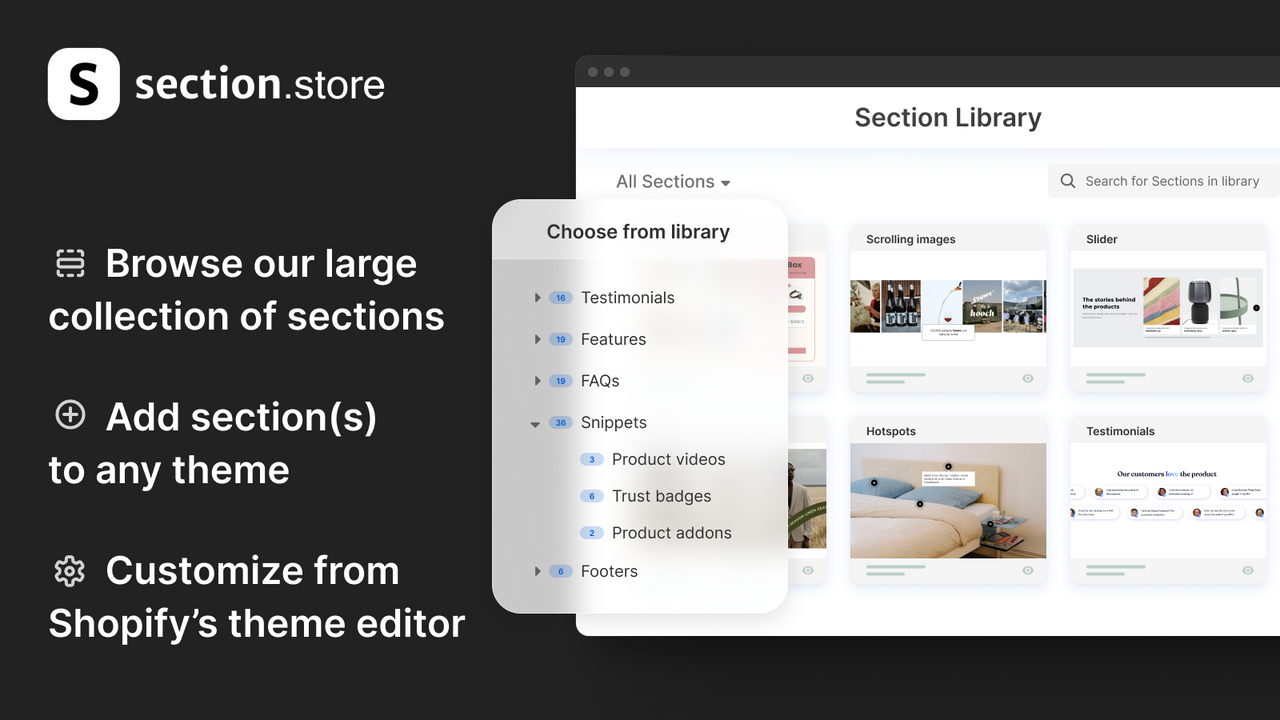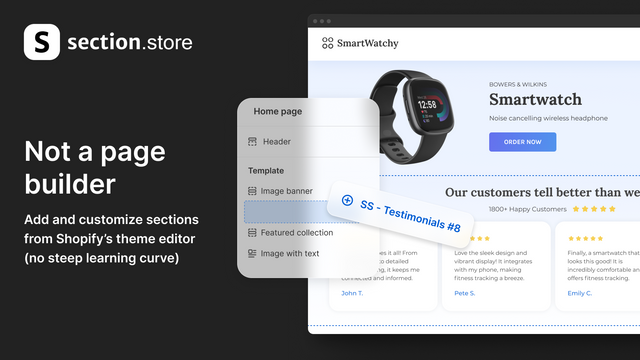Online marketing has become an integral part of any successful business strategy in today's digitally connected world. With the ever-growing influence of the internet, understanding the basics of online marketing is crucial for businesses of all sizes. In this guide, we will dive deep into the components of online marketing, as well as how to develop and implement an effective strategy.
Understanding the Basics of Online Marketing
Online marketing has become an essential component of any successful business strategy in today's digital age. With the rise of the internet, businesses have a unique opportunity to reach a global audience and engage with customers in real-time. In this article, we will delve into the basics of online marketing, its definition, and its importance in today's digital landscape.
Defining Online Marketing
Online marketing, also known as internet marketing or digital marketing, refers to the promotion of products or services using various online channels. These channels include search engines, social media platforms, email marketing, and content marketing. Unlike traditional marketing methods, online marketing allows businesses to reach a global audience, engage with customers in real-time, and measure the effectiveness of their marketing efforts.
Search engine marketing (SEM) is a crucial aspect of online marketing. It involves optimizing a website's visibility on search engine result pages (SERPs) through techniques such as search engine optimization (SEO) and pay-per-click (PPC) advertising. By implementing effective SEM strategies, businesses can increase their online visibility, drive targeted traffic to their websites, and ultimately boost their sales and revenue.
Social media marketing is another vital component of online marketing. With the ever-growing popularity of social media platforms such as Facebook, Instagram, Twitter, and LinkedIn, businesses can leverage these platforms to connect with their target audience, build brand awareness, and foster customer loyalty. Social media marketing involves creating engaging content, running targeted ad campaigns, and actively engaging with followers to create a strong online presence.
Importance of Online Marketing in Today's Digital Age
In today's digital age, consumers are increasingly turning to the internet to find information, make purchasing decisions, and interact with businesses. As a result, businesses that fail to invest in online marketing are missing out on a massive potential customer base. Online marketing offers numerous benefits, including increased brand visibility, targeted audience reach, cost-effectiveness, and the ability to track and analyze marketing campaigns in real-time.
One of the significant advantages of online marketing is its ability to increase brand visibility. With the vast number of internet users worldwide, businesses can expose their brand to a much larger audience compared to traditional marketing methods. By implementing effective SEO strategies, businesses can improve their website's ranking on search engine result pages, making it more visible to potential customers searching for relevant products or services.
Targeted audience reach is another crucial aspect of online marketing. Through various online channels, businesses can precisely target their marketing efforts to reach their ideal customers. For example, social media platforms allow businesses to create highly targeted ad campaigns based on demographics, interests, and behaviors. This level of precision ensures that businesses are reaching the right audience, increasing the chances of converting leads into customers.
Cost-effectiveness is another significant advantage of online marketing. Compared to traditional marketing methods such as print ads or TV commercials, online marketing is generally more affordable and offers a higher return on investment (ROI). With online marketing, businesses can allocate their budgets more efficiently by targeting specific audience segments and tracking the performance of their campaigns in real-time. This allows businesses to make data-driven decisions and optimize their marketing strategies for maximum effectiveness.
The ability to track and analyze marketing campaigns in real-time is perhaps one of the most significant advantages of online marketing. Unlike traditional marketing methods, where it is challenging to measure the impact of a campaign accurately, online marketing provides businesses with comprehensive analytics and reporting tools. These tools allow businesses to track key metrics such as website traffic, conversion rates, and customer engagement. By analyzing this data, businesses can gain valuable insights into the effectiveness of their marketing efforts and make informed decisions to improve their strategies.
In conclusion, online marketing has revolutionized the way businesses promote their products or services. With its ability to reach a global audience, engage with customers in real-time, and measure the effectiveness of marketing campaigns, online marketing has become an indispensable tool in today's digital age. By understanding the basics of online marketing and leveraging its various channels, businesses can stay ahead of the competition and thrive in the ever-evolving digital landscape.
Components of Online Marketing
Online marketing is a multifaceted approach that encompasses various strategies and techniques to promote businesses and attract customers in the digital realm. In this article, we will explore four key components of online marketing: Search Engine Optimization (SEO), Content Marketing, Social Media Marketing, and Email Marketing.
Search Engine Optimization (SEO)
Search Engine Optimization, or SEO, is an essential aspect of online marketing. It involves optimizing a website to rank higher in search engine results pages (SERPs). By utilizing various techniques such as keyword research, on-page optimization, and link building, businesses can increase their website's visibility and attract organic (non-paid) traffic from search engines like Google and Bing.
SEO is a continuous process that requires ongoing efforts to stay ahead of the competition. It involves analyzing and optimizing website content, improving site speed and user experience, and staying up-to-date with search engine algorithm changes. By investing in SEO, businesses can improve their online presence, increase brand visibility, and drive targeted traffic to their websites.
Content Marketing
Content marketing is a strategic approach that involves creating and sharing valuable and relevant content to attract and retain a clearly defined target audience. This content can take various forms such as blog posts, articles, infographics, videos, and more. The goal of content marketing is to establish a strong brand presence, build trust with customers, and drive organic traffic to the business's website.
Creating high-quality content requires in-depth research, creativity, and a deep understanding of the target audience's needs and preferences. By consistently delivering valuable and engaging content, businesses can position themselves as industry leaders and build long-term relationships with their customers.
Content marketing also plays a crucial role in SEO. Search engines prioritize websites that provide valuable and relevant content to users. By creating optimized content that aligns with target keywords and user intent, businesses can improve their search engine rankings and attract organic traffic.
Social Media Marketing
In today's highly connected world, social media platforms have become powerful marketing tools. Social media marketing involves leveraging platforms like Facebook, Instagram, Twitter, and LinkedIn to promote products or services, engage with customers, and build brand loyalty.
Effective social media marketing requires a deep understanding of the target audience and the ability to create compelling content that resonates with them. By developing a strong social media presence, businesses can reach a wider audience, increase brand awareness, and drive traffic to their websites.
Social media marketing also offers various advertising options, allowing businesses to run targeted campaigns and reach specific demographics. With advanced targeting capabilities, businesses can ensure that their ads are seen by the right people, increasing the chances of conversion and return on investment.
Email Marketing
Email marketing is a highly effective and personalized approach to reach and engage with customers. It involves sending targeted emails to a list of subscribers or customers. Email marketing allows businesses to deliver valuable content, promote products or services, and nurture customer relationships.
With the use of automation tools, businesses can send automated emails based on customers' actions or preferences. For example, a customer who abandons their shopping cart can receive a personalized email with a reminder and an exclusive discount to encourage them to complete the purchase. This level of personalization can significantly improve conversion rates and customer satisfaction.
Email marketing also allows businesses to segment their audience and send tailored messages to specific groups. By understanding customers' preferences and behaviors, businesses can deliver relevant content and offers, increasing the chances of engagement and conversion.
Furthermore, email marketing provides valuable insights into customer behavior and campaign performance. By analyzing open rates, click-through rates, and conversion rates, businesses can refine their email marketing strategies and optimize their campaigns for better results.
In conclusion, online marketing encompasses various components, including SEO, content marketing, social media marketing, and email marketing. By leveraging these strategies effectively, businesses can increase their online visibility, attract targeted traffic, and build strong relationships with their customers in the digital landscape.
Developing an Effective Online Marketing Strategy
Identifying Your Target Audience
One of the first steps in developing an effective online marketing strategy is identifying your target audience. Understanding who your ideal customers are, their needs, preferences, and behaviors, will help you tailor your marketing messages and choose the right marketing channels to reach them.
Setting Marketing Goals
Before implementing your online marketing plan, it's crucial to set clear and measurable marketing goals. Whether your goals are to increase website traffic, generate leads, improve brand awareness, or drive sales conversions, having specific objectives will guide your marketing efforts and allow you to track your progress.
Choosing the Right Marketing Channels
With a plethora of online marketing channels available, choosing the right ones for your business can be overwhelming. It's essential to select the channels that align with your target audience and marketing goals. Whether it's focusing on SEO for organic search traffic, leveraging social media platforms to engage with your audience, or incorporating email marketing to nurture customer relationships, each channel has its advantages and needs to be integrated into your overall strategy.
Implementing Your Online Marketing Plan
Creating Engaging Content
Engaging and high-quality content is at the core of any successful online marketing strategy. Whether it's informative blog posts, captivating videos, or visually appealing infographics, your content should be tailored to your target audience's interests and needs. By creating valuable content that resonates with your audience, you can drive traffic to your website, increase brand awareness, and establish your business as an industry authority.
Optimizing for Search Engines
A crucial aspect of online marketing is optimizing your website for search engines. By implementing SEO best practices, such as keyword research, on-page optimization, and building high-quality backlinks, you can increase your website's visibility in search engine results. Ranking higher in search engine results not only drives organic traffic but also builds credibility and trust with potential customers.
Leveraging Social Media Platforms
Social media platforms provide an excellent opportunity to connect and engage with your target audience. By creating compelling social media content, running paid advertising campaigns, and actively engaging with your followers, you can increase brand awareness, drive website traffic, and foster customer loyalty. Remember to monitor social media analytics and adjust your strategy accordingly to optimize your results.
In conclusion, online marketing is a powerful tool for businesses looking to thrive in today's digital age. By understanding the basics of online marketing, implementing a well-rounded strategy, and staying up-to-date with the latest trends and best practices, you can effectively reach your target audience, drive online visibility, and achieve your marketing goals.Ready to elevate your Shopify store's online marketing game? Let Owlmix be your guide in the digital marketplace. With a curated directory of innovative Shopify apps, Owlmix offers you the tools to enhance every aspect of your e-commerce strategy, from advertising to analytics. Embrace the wisdom of Owlfred, our brand mascot, and discover apps that align perfectly with your marketing goals. Don't miss out on the opportunity to optimize your store's performance. Find your next Shopify app today and watch your business thrive!

















